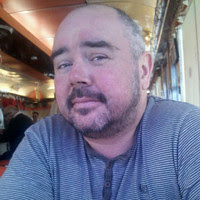The
Grolier Poetry Foundation and Forums Trust to Host the First in a
Series of Events in 2019 to Raise Financial Support
This
Event will be Held on January 25 at the Historic Sheraton Commander
by
Francine C. LaChance
francine.lachance@grolierpoetrybookshop.org
2019
is
shaping up to be an exciting year for the Grolier Poetry Foundation
and Forums Trust. The first in a series of events, planned to raise
financial support and celebrate the Grolier legacy, features Peter
Balakian, Pulitzer Prize Winning Poet and Grolier Board Member,
and
Susan
Barba,
Poet
and Senior
Editor for New
York Review Books. They
will read from their poetry, discuss their work, sign books, and take
questions from the audience. This event will be held on Friday,
January 25, at 7pm, at the historic Sheraton Commander,
coincidentally, also established in 1927, the same year as the
Groler.
Afterwards,
there will be a reception with generous amounts of delicious hors
d’oeuvres
and a cash bar. Although
the reading starts at 7pm, doors will open at 6:15pm to welcome
guests who would like to enjoy food and a drink before the reading.
Trustee
and landlord of the famed Bloc11 in Somerville, Ifeanyi Menkiti said he “very much looks forward to
this event, which honors the now 91 year old Grolier tradition of
bringing poets and those who love poetry together.” The guest list
of poets, so far, includes: Kathleen
Spivack,
Frank
Bidart,
David
Ferry,
Robert
Pinsky,
Lloyd Schwartz, George
Kalogeris,
Fred Marchant, Martha Collins and Askold
Melnyczuk.
Poets Balakian and Barba gave us a preview of their discussion,
stating: “We will reflect on poetry and its relationship to trauma,
collective memory and the poem’s
engagement with history.” Menkiti remarked “The focus of this
reading aligns beautifully with the Grolier mission. Hosting these
types of events is exactly what led me to save the Grolier from
closing in 2006, and continues to excite me about our future.”
Poets
Peter Balakian and Susan Barba shared their reflections on the
Grolier, along with a request for support:
“For
us, as for so many poets, the Grolier has been a vital location, and,
for nearly a hundred years, a temple to poetry and the most
historically important bookstore of its kind. Because poetry is the
cutting edge of language and a singular force in probing human
experience, the Grolier remains essential to American life. Please
come out and support the Grolier and its future.”
Another
reason to come out and support the Grolier is that they are now
transitioning from a private operating foundation to a public
charity. Menkiti’s
intention has always been to shepherd this legendary cultural
institution, and thereby to prevent any possibility of its ever
closing, as almost happened in 2006. Menkiti is working closely with
Francine C. LaChance, Consultant for the Grolier,
to
develop
a broader
range of funding opportunities in order to shift the financial burden
from himself to some other sources, which include: donors, grants,
and events,
including
the upcoming evening at the Sheraton.
“The
Grolier is and has been a beloved icon of culture and poetry for near
a century, while also preserving the historic quality of Harvard
Square. With many friends who want to support us, this shift to a
public charity makes sense,” said Menkiti.
While
Menkiti will continue to lead the cultural work of the Grolier, he
also noted that he did not intend his role as the primary source of
financial support to continue indefinitely.
The
Grolier expresses gratitude for the following support, for the
January 25th event:
Venue
Sponsor, discounted rates:
Michael
Guleserian, General Manager of the Sheraton
Commander
Book
Sponsors, donated books:
Randolph
Petilos, Poetry and Medieval Studies Editor, University
of Chicago Press
Sue
Berger Ramin, Associate Publisher, David
R. Godine
Event
Supporter:
The
Grolier, owned by longtime Somerville resident Ifeanyi Menkiti, also acknowledges long standing support and generosity from
our friends, with special thanks and gratitude at this time to
Kathleen Spivack, David Ferry, and Emily Nammacher.
Tickets
and select books
by featured poets are available for purchase online. If you are not
able to attend this event, you may still purchase these featured
books online, for pick up at the Grolier, or for shipping, after the
event. If you would like to have your books signed, please email:
francine.lachance@grolierpoetrybookshop.org.
What
can you expect from the Grolier in 2019? Menkiti remains fully
engaged in continuing and advancing the cultural work of the Grolier.
He appears to be ramping up more events, more publishing projects
with the Grolier Poetry Press, and some new and exciting
special projects,
including, potentially, a fascinating event that would be of great
interest to our local friends, and currently under consideration with
the Cambridge
Historical Society.
Additional
2019 events and readings include: an event featuring Robert Pinsky
and his book length poem An
Explanation of America,
now celebrating 40 years; a re-issue and celebration of David Ferry’s
Grolier Poetry Press book Ellery
Street; and
the Arrowsmith Press Book Launch. Readings in the Book Shop will
feature poets Ben Mazer and A.E. Stallings, George
Kalogeris,
and Raul
Zurita
and William Rowe translator.
Please
visit our website
for more information about the Grolier, including upcoming events.
If
you can't attend the upcoming event at the Sheraton, but would like
to support the Grolier, please consider
making a donation.








































